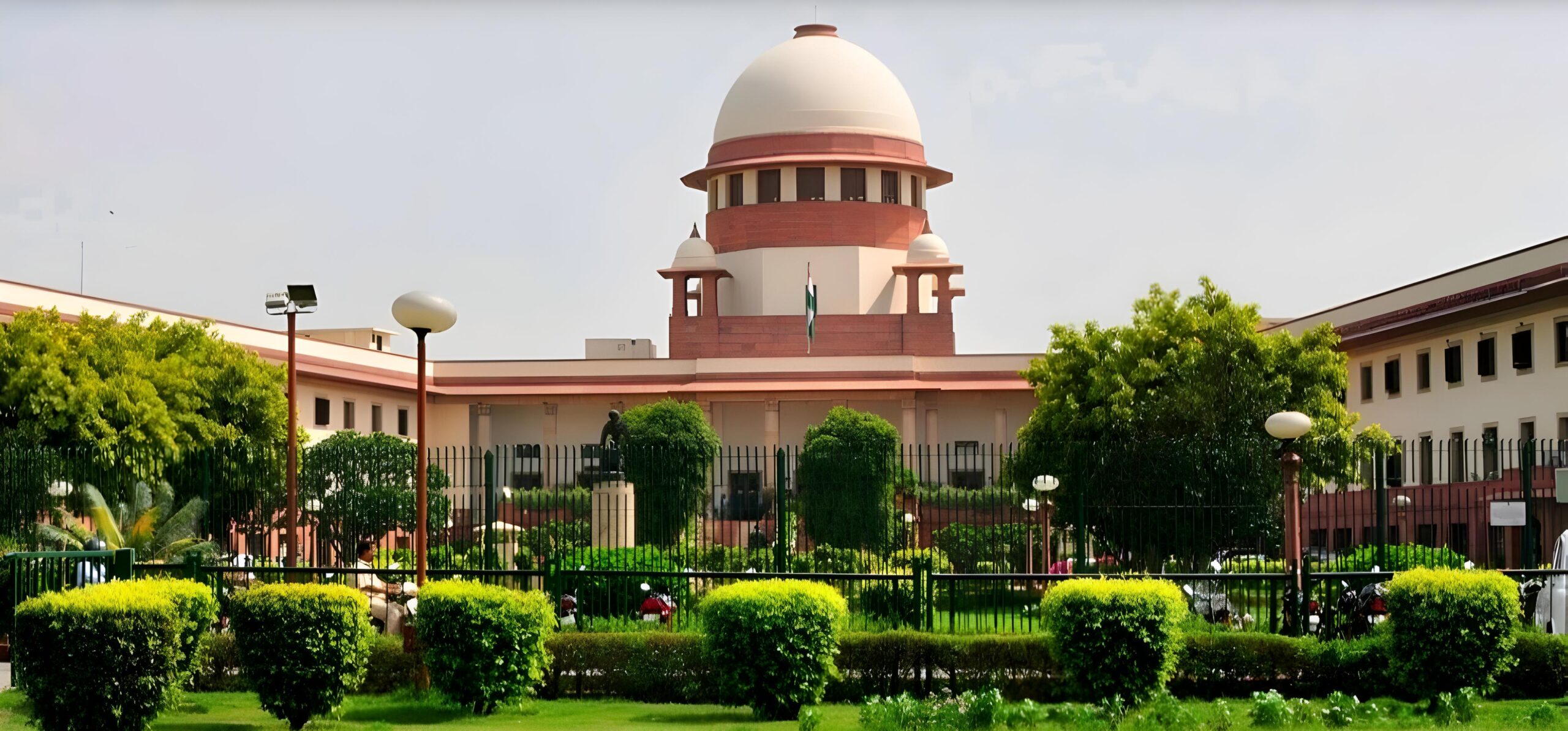In a landmark judgement, the Supreme Court of India, led by Chief Justice DY Chandrachud, has unanimously declared the electoral bonds scheme unconstitutional. The decision was made by a five-judge Constitution bench, which found the scheme to be in violation of Article 19(1)(a) of the Indian Constitution. As a result, the scheme, along with all related amendments to various laws, has been struck down.
The court’s judgement was based on the finding that the amendment to Section 182 of the Companies Act, which permitted unrestricted corporate political funding, was unconstitutional. This amendment was found to infringe upon citizens’ right to information regarding potential quid pro quo arrangements. The court noted that corporations have a more significant impact on the political process than individual contributions, and that corporate contributions are essentially business transactions. The court further stated that the amendment to Section 182 of the Companies Act was manifestly arbitrary as it treated corporations and individuals in the same manner.
The court also observed that the Companies Act had previously prohibited loss-making companies from contributing through electoral bonds. The court stated that the amendment failed to acknowledge the harm caused by allowing loss-making companies to contribute due to potential quid pro quo arrangements. The court found the amendment to Section 182 of the Companies Act to be manifestly arbitrary as it did not distinguish between loss-making and profit-making companies.
Furthermore, the court ruled that the Centre had not demonstrated that the measure adopted in clause 7(4)(1) of the electoral scheme was the least restrictive measure. The court declared the amendments to the Income Tax Act provision and Section 29C of the Representation of Peoples Act to be ultra vires.
In light of these findings, the court ruled that the electoral bonds scheme must be abolished. It directed the State Bank of India to provide all details of electoral bonds and the political parties that cashed them to the Election Commission of India. The court also ordered the Election Commission to publish the data provided by the State Bank of India by March 31, 2024. Additionally, the court instructed the banks issuing the bonds to cease any further issuance of the bonds with immediate effect.
The legal terms and sections mentioned in the article:
Article 19(1)(a) of the Indian Constitution:
This article guarantees the freedom of speech and expression to all citizens of India. It implies that every citizen has the freedom to express their thoughts and views without any hindrance. This right is not limited to verbal communication but extends to written expressions, images, films, banners, and more.
Section 182 of the Companies Act:
This section contains the provisions regarding Prohibitions and Restrictions on Political Contributions by Companies. It prohibits certain companies from making political contributions and restricts some companies to make political contributions subject to the compliances of section 182. The amendment to this section, which permitted unrestricted corporate political funding, was found to be unconstitutional by the Supreme Court.
Section 29C of the Representation of Peoples Act:
This section requires the treasurer of a political party or any other person authorized by the political party to prepare a report each financial year about the contributions received by the political party. The report should include the contribution in excess of twenty thousand rupees received by such political party from any person in that financial year. The amendments to this section were declared ultra vires by the court.
FAQs
What was the Supreme Court’s decision on the electoral bonds scheme?
The Supreme Court of India has unanimously declared the electoral bonds scheme unconstitutional.
Who led the Supreme Court bench for this decision?
The decision was made by a five-judge Constitution bench led by Chief Justice DY Chandrachud.
Why was the electoral bonds scheme declared unconstitutional?
The scheme was found to be in violation of Article 19(1)(a) of the Indian Constitution, which guarantees the freedom of speech and expression. The court found that the amendment to Section 182 of the Companies Act, which permitted unrestricted corporate political funding, infringed upon citizens’ right to information regarding potential quid pro quo arrangements.
What did the court say about corporate contributions to political funding?
The court noted that corporations have a more significant impact on the political process than individual contributions, and that corporate contributions are essentially business transactions.
What were the court’s observations about loss-making companies contributing through electoral bonds?
The court observed that the Companies Act had previously prohibited loss-making companies from contributing through electoral bonds. The court stated that the amendment failed to acknowledge the harm caused by allowing loss-making companies to contribute due to potential quid pro quo arrangements.
What actions did the court direct after declaring the electoral bonds scheme unconstitutional?
The court ruled that the electoral bonds scheme must be abolished. It directed the State Bank of India to provide all details of electoral bonds and the political parties that cashed them to the Election Commission of India. The court also ordered the Election Commission to publish the data provided by the State Bank of India by March 31, 2024. Additionally, the court instructed the banks issuing the bonds to cease any further issuance of the bonds with immediate effect.

